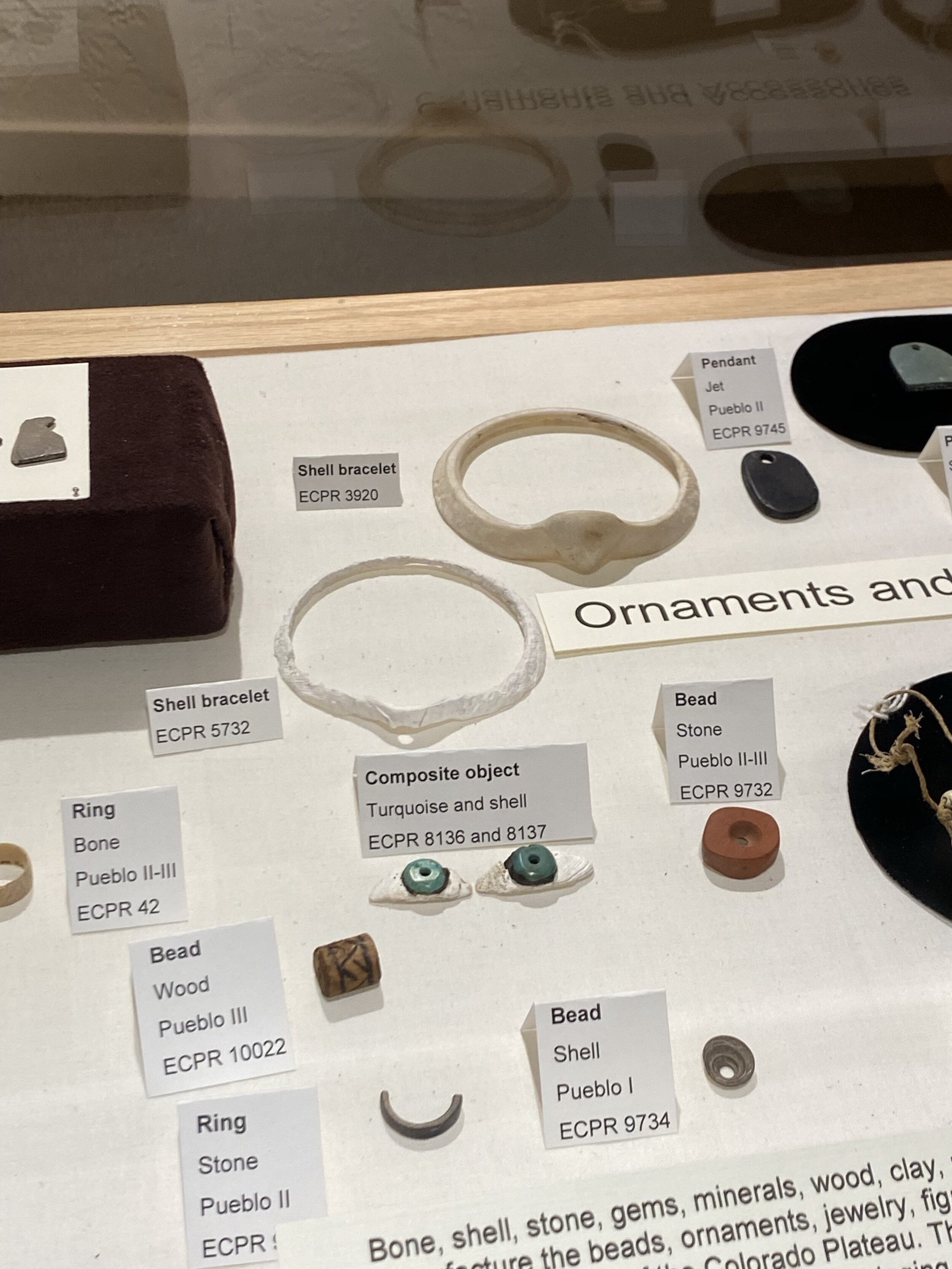Season 3 // Episode 4: The Trade of Color (Part I: Shells)
/Trade for a silent prayer.
Water has always been precious to the Ancestral Pueblo people, and it is still precious to their descendants today. As dry farmers in an arid region, prayers for moisture and rains have been passed down for thousands of years and often incorporate items that were acquired from faraway places associated with water.
In this episode of Season 3, we hear from Lyle Balenquah Hopi archaeologist, and Jonathan Till, Curator of Collections at Edge of the Cedars State Park Museum located in Blanding, Utah.
We also hear again from Bridget Ambler, Supervisory Curator for Canyons of the Ancients Visitor Center and Museum about the trade relationships across what is currently known as Montezuma Valley.
“Seashells represent moisture coming from some great body of water, coming to replenish our land. It’s like a silent prayer advocating that moisture come to this dry area.”
Additional Resources
Shells at Edge of the Cedars State Park Museum in Blanding, Utah
See Ancient and Modern Shell Jewelry on Exhibit
DISPLAY CASE AT EDGE OF THE CEDARS STATE PARK MUSEUM (photo: kayla woodward)
Edge of the Cedars State Park Museum Blanding, Utah
Canyons of the Ancients Visitor Center and Museum Cortez, Colorado
Mesa Verde National Park Visitor and Research Center
Mesa Verde Museum Mesa Verde National Park, Colorado
American Museum of Natural History New York City, New York
Edge of the Cedars State Park Museum
Edge of the cedars great house and the abajo mountains (photo: kayla woodward)
Edge of the Cedars State Park is located in Blanding, Utah on the site of a Chacoan Great House. The museum offers exhibits showcasing textiles, jewelry, pottery, and other representations of daily and ceremonial life for the Ancestral Pueblo people.
Follow the park on Facebook for updates.







